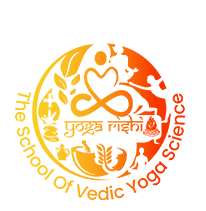
Maximize your Yoga Results with Nutritious Pre- and After- Work out Diet
Yoga and Nutritious Diet:
A healthier way of life must include both yoga and a balanced food since they work together to enhance your general health and energy. Both practices have a long history of acceptance throughout civilizations and are proven to offer several psychological, emotional, and physical advantages.
Yoga is an age-old mental and physical practice that involves bodily poses, meditation, deep breathing, and relaxation methods. It has been proven to be effective for enhancing mobility, power, stability, and general fitness as well as lowering stress levels, anxiety, and depressive symptoms. Contrarily, nourishment is the energy that fuels your body as well as is crucial for giving the body the resources it needs to perform at its best.
Yoga with a healthy diet may enhance and magnify each other’s advantages, having a greater overall positive effect on overall wellness and health once you know what to eat before and after yoga.
Role of Diet in Boosting Work out Results:
Your nutrition has a big impact on how well your workouts go. The body requires the right fuel, vital nutrients, and cellular building blocks to operate at its peak throughout exercise and to get back efficiently afterward, and this can only be achieved with adequate nourishment. Here are some prominent ways that what to eat before and after yoga can have an influence on the outcomes of exercise:
- We get the fuel we need for physical activity from the foodstuffs we eat. A sufficient intake of carbs supports the production of energy, enabling longer and more fruitful workouts.
- Muscular fiber tiny tears can result from resistance workouts or other kinds of activity. Consuming enough protein aids in the maintenance and growth of these muscles, enabling them to become more robust and significant as time goes by.
- For best workout effects, following a workout restoration is essential. Following exercise, eating a combination of carbs and protein assists to lessen muscular pain and enables the body’s ability to repair itself effectively.
- Dehydration can result in diminished strength, mental impairment, and lowered endurance. Consuming enough water over the day and while exercising is essential for achieving optimal results.
- A well-rounded diet is essential, containing the right proportions of good fats for general health and energy storage, protein to assist muscle development and repair, and carbs for energy.
- In order to produce energy, maintain healthy muscles, and maintain general wellbeing, nutrients such as vitamins and minerals are crucial. Having a variety of fruits, vegetables, nuts, as well as seeds makes sure that your system gets the micronutrients it needs to function at its best.
- The things you eat may significantly impact your results, regardless of whether your objective is to reduce fat, build muscle, or both.
- Taking quickly digested carbs while exercising can improve performance by supplying steady energy for longer periods of time.
- Bone density, tissue wellness generally, and joint health are all supported by a healthy diet. A balanced diet can help avoid injuries and speed up healing once they do happen.
- Exercise-related mental focus and attention may be affected by diet. Staying hydrated and refraining from big, bulky meals prior to exercise helps support mental focus and minimize distractions while exercising.
Particular Nutrients that are Important for Exercise Results:
Numerous nutrients are crucial for achieving your fitness goals. Among the most crucial nutrients are:
- Protein: for preserving a healthy weight, mending and growing muscular tissue. Lean meat products, poultry, fish, eggs, beans, lentils, plus poultry are all fantastic sources of protein.
- Carbohydrates: for supplying stamina during intense exercise. Wholesome grains, fruits, and vegetables are wonderful sources of carbs.
- Fats: for a variety of physiological processes, including hormone synthesis and digestion of vitamins. But it’s crucial to pick nutritious fats such those in almonds, and seeds.
- Water: for a variety of body processes, consisting of the movement of vital nutrients and the elimination of toxins. Water consumption is crucial prior to, throughout, and after workouts.
Food Items to Consume Before Yoga Session:
The correct foods must be consumed a minimum of thirty to sixty minutes ahead a yoga session in order to supply your body with the nourishment and energy it needs without making you feel sluggish or unpleasant. Generally speaking, the following foods are suitable to eat in diet before yoga:
- Fresh fruits that may give you an instant boost of energy.
- Greek yoghurt low in fat to maintain your energy levels.
- In order to keep you full and energized, eat a small quantity of nuts or seeds.
- Using a liquid basis like milk along with a powdered protein scoop for combining fruits, leafy greens, and other ingredients to produce a beverage that is nutrient-rich and readily absorbed.
- A small dish of fruit and muesli for long-lasting energy.
- a few rice pancakes or toast made with whole grains spread with nut butter makes for a balanced source of good fats and carbs.
- Energy bars comprised of oats, nuts, seeds, and dried fruits. Skip the bars containing extra sugar.
- Dates to give you a little push before practicing yoga.
Remember that it’s better to stay away from heavy, oily, or excessively processed meals in the diet before yoga. Additionally, avoid consuming huge meals because they could make turning and bending uncomfortable.
Food Items to Consume After Yoga Session:
It’s crucial to have a healthy meal inside a couple of hours after your yoga practice to replenish your system with nutritional meals that support hydration, muscle healing, and general wellbeing. The ideal post-yoga snacks need to offer a harmony of nutrients to aid in your body’s recovery and promote vigour. The suggested diet after Yoga must include:
- Rehydrate your body by first consuming water or coconut water.
- A mixture of fruits in a bowl, which can help boost energy levels and supply necessary antioxidants. Fruits are naturally sweet, rich in vitamins, minerals, as well as carbohydrates.
- Eat foods that are high in protein, such as eggs, beans, etc., to help muscle develop and recover.
- a lush green salad or a sautéed vegetable dish that is high in nutrients.
- Whole grain products that deliver extra fiber along with complicated carbs for long-lasting energy.
- Fruits, leafy greens, powdered protein, and either milk or water that are combined to make a smoothie.
- a small amount of mixed nuts or seeds to obtain the necessary vitamins, minerals, and good fats.
Avoid excessively processed, sweet, or fatty foods in diet after Yoga since they could negate the health advantages. Refrain from alcohol and excessive amounts of caffeine as well because they can cause dehydration.
Dietary Tips for Pre- and After- Work out Diet:
Now when you understand what to eat before and after yoga, have a look at the following pointers for fusing yoga with diet:
- Consume a wide range of unprocessed, natural foods.
- Pick foods that are rich in minerals, vitamins, as well as fiber.
- Steer clear of packaged foods, sugary beverages, and excessive quantities of alcohol as well as caffeine.
- Consume food when you feel hungry and pay attention to the way you feel.
- When you’re full, cease eating.
- Slow down and enjoy your cuisine.
- Schedule frequent yoga sessions.
- During yoga, pay attention to your breath and let your body unwind.
Conclusion:
In summary, combining a healthy diet and yoga into your everyday routine can result in a life that is more harmonious and satisfying. You may obtain more energy, inner tranquilly, and lifespan by adopting this comprehensive practice. To create a strategy that meets your unique requirements and goals, don’t forget to speak with nutritionists, experienced yoga teachers, or health care providers.








